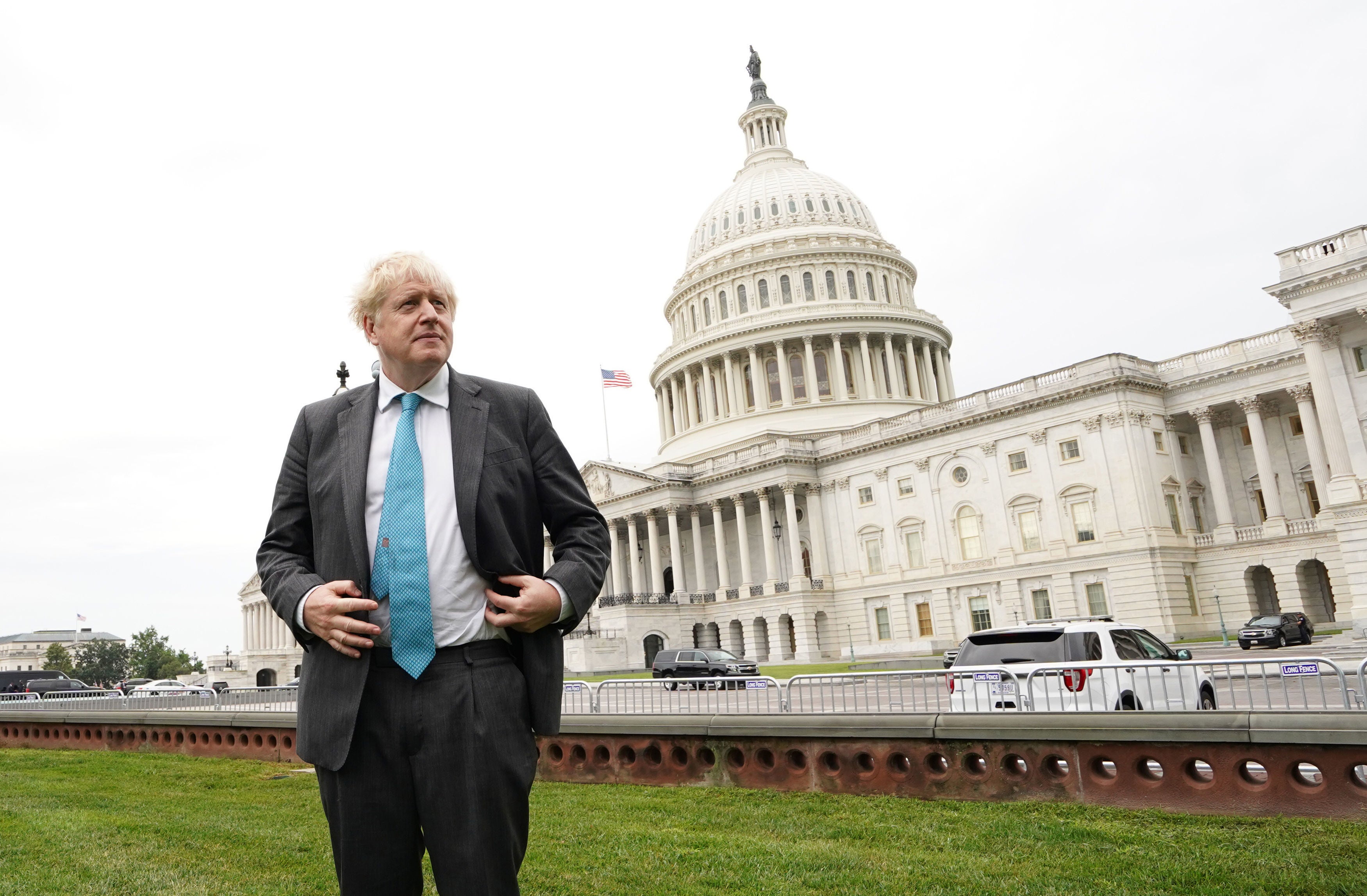Boris Johnson’s climate crisis rhetoric has to be backed up with swift action
Editorial: The prime minister is right that the world ‘has to grow up’ – and the UK must do everything it can to ensure that happens

As he travelled to New York on Sunday, Boris Johnson told journalists there was a “six in 10 chance” of success at the critical Cop26 climate conference in Glasgow in November. On the final day of his trip to the US, the prime minister said he might have “undercooked it”. President Biden’s announcement at the United Nations General Assembly on Tuesday, that the US would double its climate finance to developing countries to $11.4bn (£8.3bn) a year, exceeded Mr Johnson’s expectations and provided some much-needed momentum ahead of the conference.
It is still not certain that, as the host of Cop26, the UK will ensure the richest nations finally deliver their pledge, first made in 2009, to provide $100bn annually by last year to help poor countries tackle climate change. Latest estimates from the Organisation for Economic Co-operation and Development (OECD), before Mr Biden’s announcement, suggested the rich nations club was about $20bn short. Hitting the $100bn target is a necessary precondition for persuading the developing world to cut their greenhouse gas emissions.
So Mr Johnson will have to persuade others to do their share. In his own words to the UN on Wednesday the prime minister said that Cop26 is “the turning point for humanity” and that world leaders must decide to be “awesome” in the fight against the climate crisis. With the summit just over five weeks away, he is characteristically leaving things until the last minute. While Alok Sharma, the cabinet minister and Cop26 president, has held talks with more than 100 countries, he does not enjoy the clout of a national leader in general or Mr Johnson in particular. Although the prime minister will doubtless want to focus on the gas price crisis on his return, he should devote as much time as possible from now on to ensuring a successful summit. For the UK not to fulfil its climate leadership role to the maximum would be nothing less than a dereliction of duty. Mr Johnson has said that the world believes “that someone else will clear up the mess we make” – Britain has to be at the forefront of changing that.
While China’s pledge to stop building coal plants in other countries is to be welcomed, it is still unclear whether President Xi Jinping will attend the leaders’ talks at the start of the Glasgow gathering. As things stand, the world is going to come up short: UN analysis of the nationally determined contributions by individual countries projects that emissions will rise by 16 per cent by 2030 which, without further action, would see 2.7C of warming above the pre-industrial average by the end of the century, way beyond the 1.5C goal in the 2015 Paris Agreement.
In his speech to the UN, Mr Johnson was right to argue that the climate crisis and economic growth are not mutually exclusive trade-offs but vital for the success of each other. Listing Cop26’s goals as “coal, cars, cash and trees”, he deployed a long analogy depicting humans at the adolescent stage of their development. “We must show that we are capable of learning, and maturing, and finally taking responsibility for the destruction we are doing, not just to our planet but to ourselves". With a headline in mind, he argued: "It is time for humanity to grow up.”
All well and good. But the prime minister (and self-confessed one-time climate sceptic) has shied away from a grown-up debate with the British people about the sacrifices and costs needed to save the planet. He has focused almost exclusively on the benefits, such as hopes his “green industrial revolution” could create up to 250,000 jobs, and hinted that hard-working families will not have to meet the cost of the transition to net-zero emissions by 2050. But he has not shown the leadership required to prepare people for unpalatable and expensive medicine, whether on the removal of domestic gas boilers or the switch to electric cars.
Government proposals on heat and buildings and the cost of net zero are stuck in the Whitehall pipeline. Mr Johnson should clear this blockage and be straight with the public as he explains in detail how the UK will achieve its laudable aims to cut emissions by at least 68 per cent by 2030 and 78 per cent by 2035.
Although he is right about the urgency the world must now show, it is also time for Mr Johnson to step up to the plate.



Join our commenting forum
Join thought-provoking conversations, follow other Independent readers and see their replies
Comments